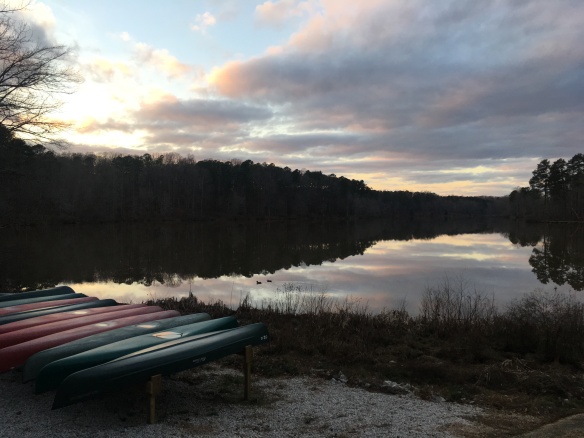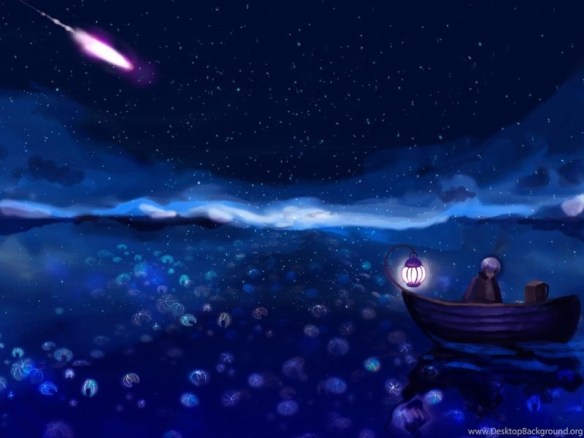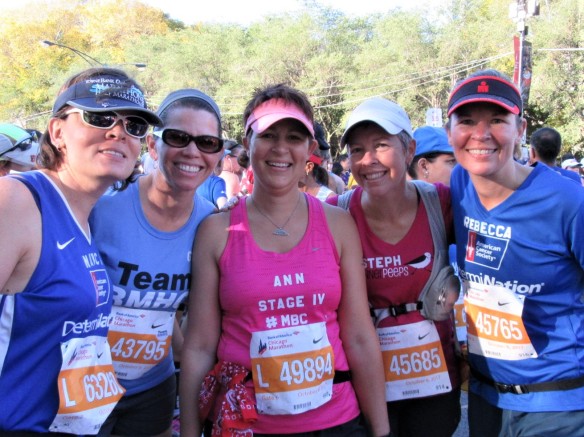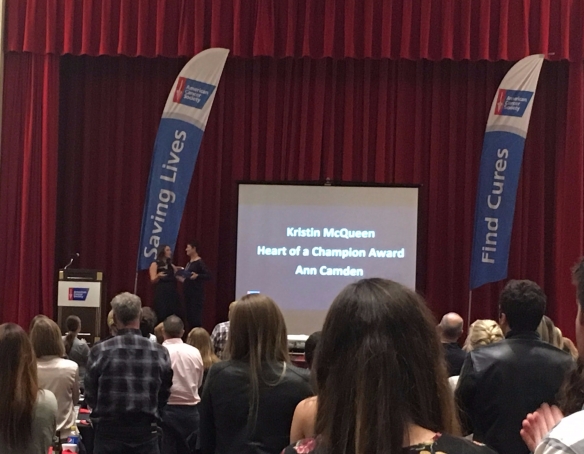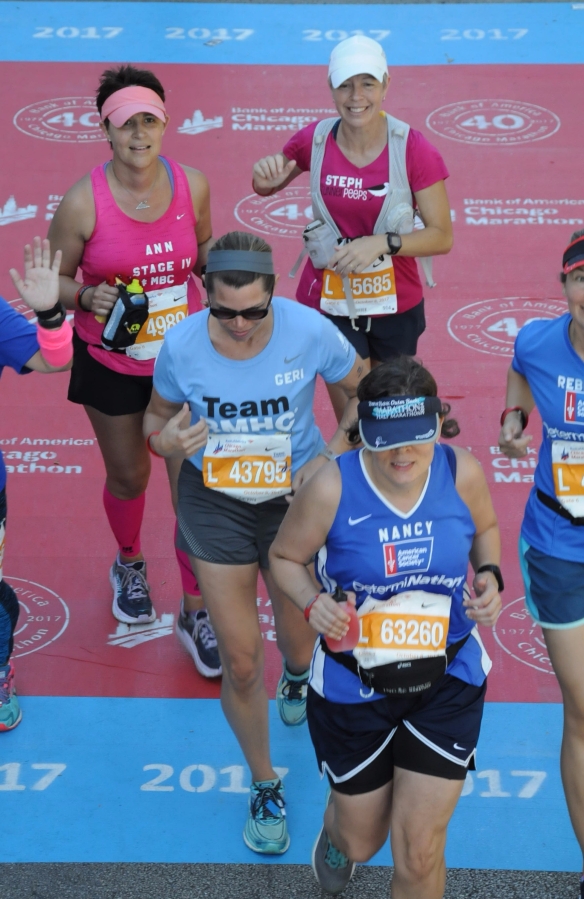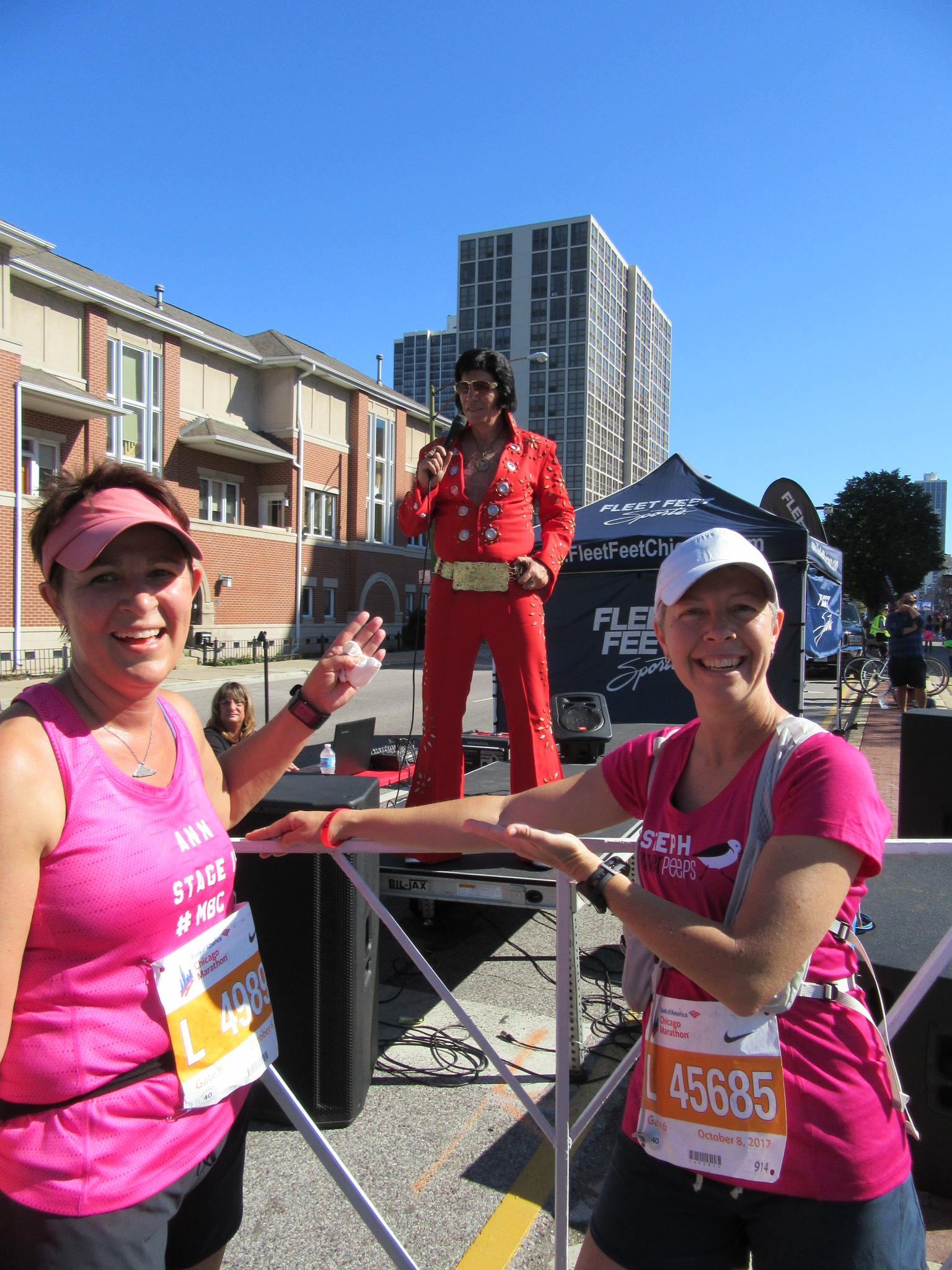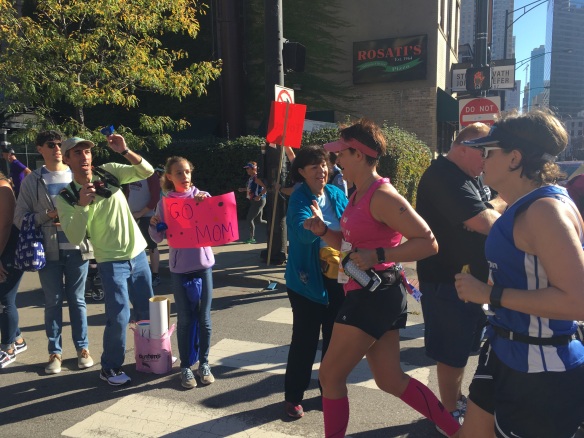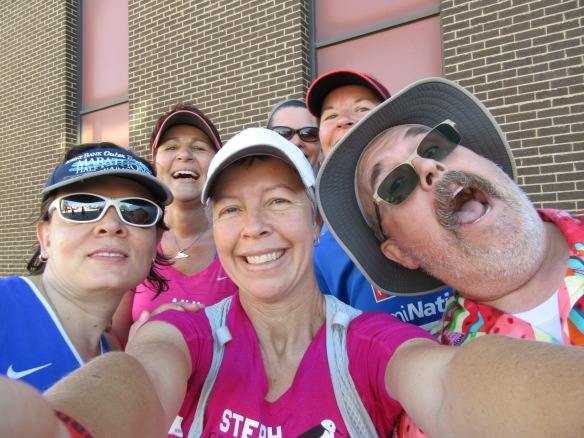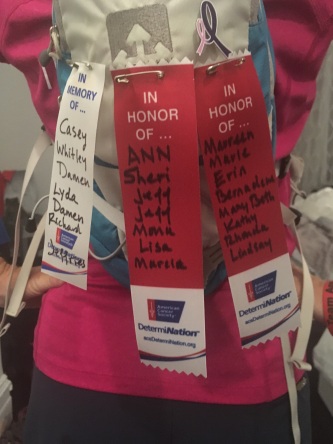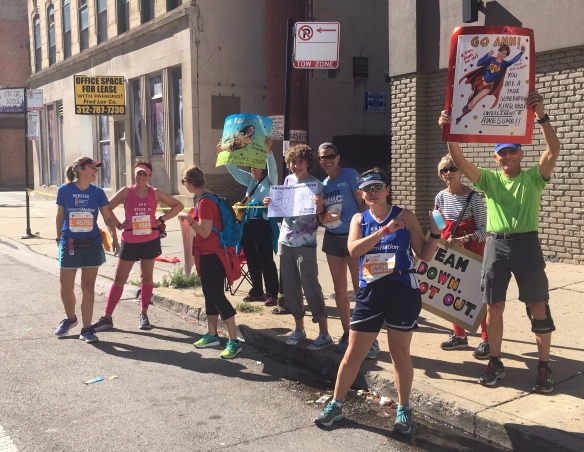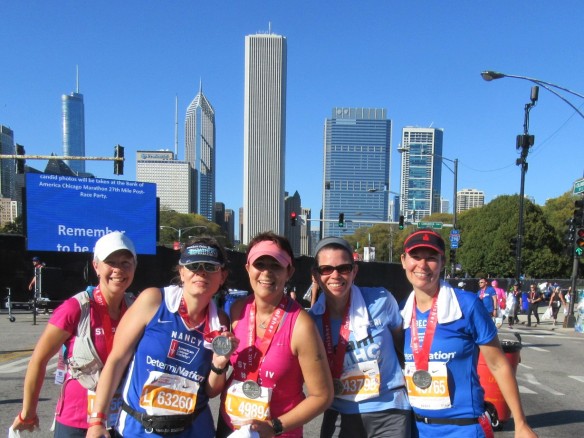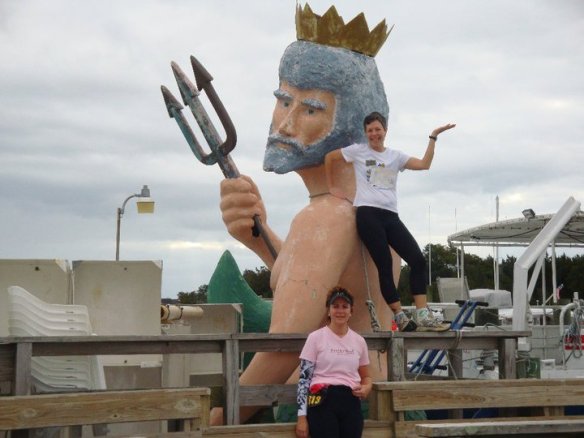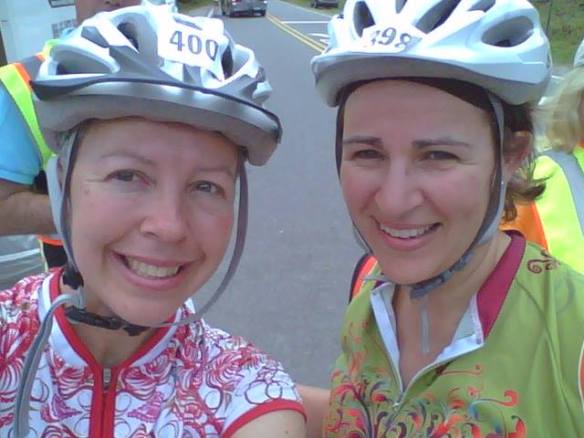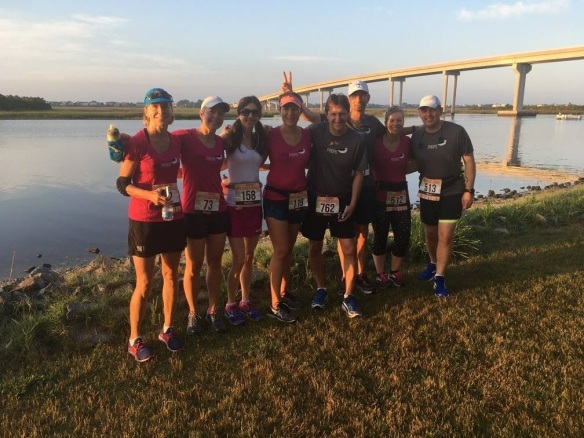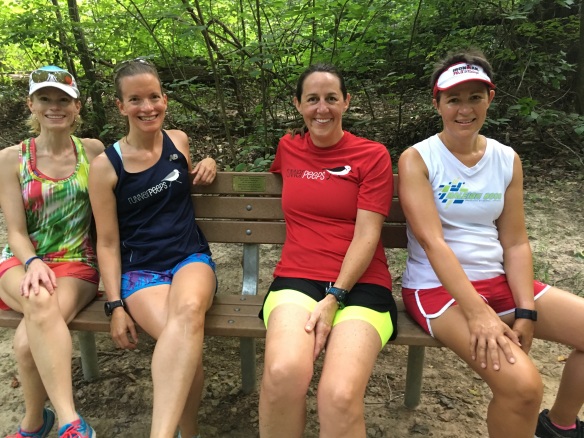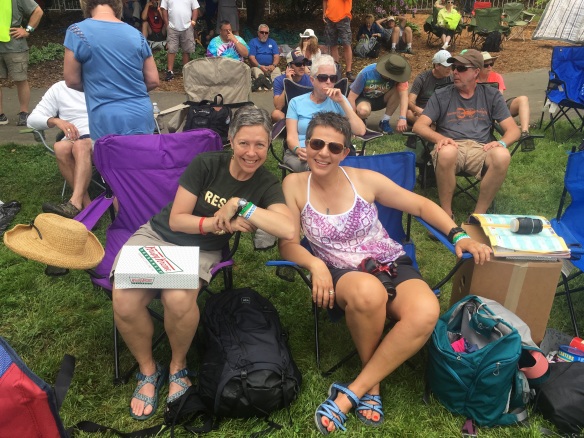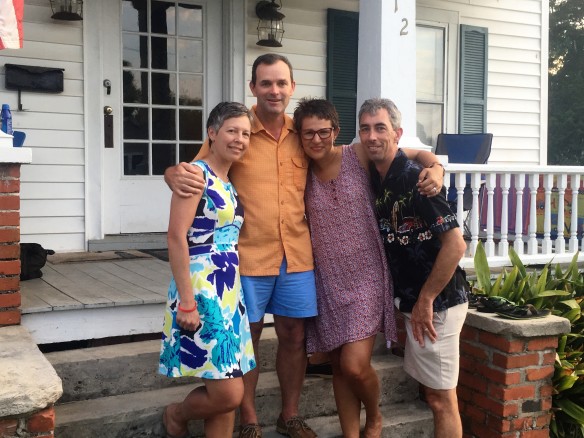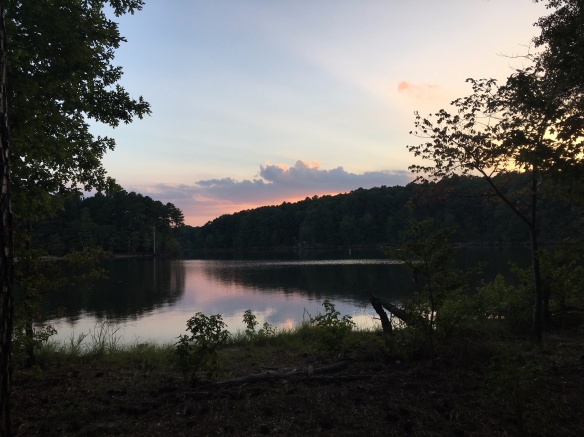My beloved mother-in-law, Shirley, was diagnosed with frontotemporal dementia (FTD), with primary progressive aphasia (PPA) in May 2016. This disease is put under the Alzheimer’s umbrella, but it is different from Alzheimer’s in important ways. For starters, her memory is still okay.
What people first notice about Shirley is that she is fun and energetic, but she also has difficulty speaking. Sometimes that means that she cannot string words together coherently; other times it means that she talks in a vague way, never finishing her sentences. It seems like she knows exactly what she’s talking about, but you can’t follow her. Other times she says the word clearly, but it’s the wrong word entirely. And sometimes, the words get garbled on the way out of her mouth.
Another piece of FTD that is less evident is lapses in logic, plus delusions and paranoia. This is really hard to understand. For years she would insist on crazy encounters with animals and other people, things that seemed really far-fetched, but she would insist they had happened and get angry if you questioned her or expressed doubt.
We are fortunate in the way her disease has unfolded over the past two years. First, Shirley has the support of several of her kids and their spouses—together, we are Team Shirley. We all have her best interests at heart, and we work together to do what is needed. After her diagnosis, her doctor advised her to get her affairs in order, and thankfully she followed through (within months, she denied that there was anything wrong with her). Andrew and I also convinced her to move to Raleigh, since she was living alone and far from family support.
Once she arrived here, in January 2017, things unraveled pretty quickly. We realized that she was incapable of living alone or in independent living. By the end of the year and after many harrowing events (stories for another time—or perhaps better left untold), we moved her into an Alzheimer’s/memory care facility. That was the best decision we made by far, although it felt devastating. She has the support she needs, and they focus on her needs in ways that we cannot. They have an amazing staff of caring people who treat their residents with dignity, kindness, and respect. We are exceedingly lucky to have them on our team.
Not much is known about FTD, and I make mistakes and learn new strategies every day. I foresee writing pieces periodically as our story unfolds. As I poured my heart into my journal, I realized that sharing these stories could educate people about FTD/PPA, while easing my heart through a long and sad goodbye.
I don’t pretend to have answers. I merely write about our experience. For fellow caregivers, I hope you see your own families reflected and relate to the full range of emotions and experiences associated with FTD/PPA. My first story is about taking Shirley shopping this week. It’s lighthearted, but I hope that you can see bits and pieces of her personality, the reality of FTD/PPA, and how much I love this sweet lady.
#####
On Sunday, I took Shirley out shopping for pants. This was nearly a 3-hour venture, and we only went to one store. My singular goal was to help her find pants—and I appreciated the chance to spend time with her this way. But, shopping with someone who has FTD is both hilarious and maddening—and requires patience that is not my strong suit. Part of me dreaded it. I have to remind myself to check my expectations at the door, and do my best to roll with anything.
Goodwill has always been her favorite store, and they have a broad selection of classic styles, more than a regular store. I can’t imagine taking her to the mall. I reached her by phone and told her I was on my way. She was in a good mood. “Great!” she said. I told her that I had to take Simon to camp first, so I would be there in an hour. But when I arrived, Lynn said that she had started looking for me as soon as I called.
I’m glad that we stopped by her room first to get her purse. Kathryn could easily reimburse me, but the last time we went shopping, Shirley’s mood darkened the longer we were there. Andrew and I were perplexed. Finally, she said she “couldn’t have anything.” I realized she was frustrated about not having her own money, which to her signifies freedom. Before we moved her, she carried large sums of cash and walked to the nearby shopping center. Bus schedules and scribbled notes about trains littered her apartment. We worried for her safety. Now she has a low-limit credit card and a small amount of cash that stays in the safe at her facility.
During the 20-minute ride to the store, she unbuckles her seat belt twice. Each time, I coach her through buckling it, pausing while she does each step, but the second time she can’t figure it out. She would work on it for a minute, then get distracted by her purse strap or the insistent seat belt warning. I finally gave up, and we hear the beeping every few minutes until we arrive at Goodwill.
Shirley walks through the door and her face lights up. “Wow,” she exclaims, gesturing enthusiastically at the neat, color-organized shirt rack, “it’s like a … like a …” her voice trails away as she searches for the word. “Yes,” I agree, catching her eye and nodding, “it’s a rainbow of color, isn’t it?” “Rainbow! Yes.”
We find the pants section, but she already has two white button-up shirts in hand. She doesn’t need shirts, but they make her happy. At first, I watch her, examining the pants at arm’s length, then fumbling as she tries to read the label. FTD with primary progressive aphasia affects ALL language—not just speech. She’s almost lost her ability to write, but she hangs onto reading—perhaps because she worked in the College of Charleston Library for all those years. I bring her books and she enjoys reading them.
“Tal- Talbots. That’s good.” She may have dementia, but she still recognizes quality.
She is making some strange choices, though. The hot pink pants don’t faze me, but I know she’ll struggle to put on skinny jeans. So I start going through the racks myself, pulling out pants with a classic style that I think might fit—and I’m totally guessing. Shirley hates pants that pinch at the waist, but she also hates elastic waist pants. I grab a dozen pairs of khaki pants, in different sizes and styles, and hope for the best. We head for the dressing room.
I bring some pants in for myself, too, even though I don’t need any. That way we are shopping together, instead of me taking her shopping. We laugh at the corduroy jeans I try on—I’m neither curvy nor skinny, as the label suggests, and they look awful.
She slips off her jeans and starts trying to negotiate the hangers. After a few minutes, I gently take them from her, and we soon have a good system going. I hand her the pants to try on, hang up the ones she’s already tried, and sort them into keepers and rejects.
She can put the pants on by herself, I’m happy to see. Last week when I visited, she gave me two shirts and said they “didn’t work.” Later, I noticed that both had hidden plackets. She could not find the buttons.
I hand her another pair. I’m hopeful, because the last pair was too small, and these are larger. She peers at the label, then shoves them back at me. “I don’t wear this number!” she snaps. I take a breath and shrug agreeably. “OK, let’s try this pair.” I move the spurned pants to the bottom of the pile, hoping that we can try them again in a few minutes. The next pair are the size she thinks she should wear, but they don’t fit. I sigh inwardly, remind myself this is the disease, and say nothing.
The pair after that look promising, but they have a hook closure. “These don’t work.” “Look, I can show you–these are easy.” “I don’t like them.” “OK.” No hooks. I pull out all the pants that have hooks and put them in the reject pile.
Shirley grabs the pants I tried on earlier. She likes corduroy. I remind her how tight they were on me, and we start laughing again. Then, I hand her a pair of soft brown corduroy pants. She frowns. “I already have these. I need them fixed.” In fact, she gave a similar pair to me last week. For some reason she had cut out pieces of the waistband, and I can’t repair them. I nod and hand her the next pair quickly so she doesn’t start rummaging through the pile she’s already tried.
“I like these. These work!” She is thrilled. They are white capris that she picked out. I would never choose white—not for myself, nor anyone—they are a magnet for coffee and tomato sauce. I hug her. “These are perfect for summer, and they will match everything. Good find!” She beams. I decide to try again with the pair she rejected earlier, which are the same size. “Hey, these look really nice—let’s try these next.” She slides them on and after a short pause, buttons the waist. “Yeah. Good!” I add them to the keepers.
She gets dressed and we head back to the racks for round two. Shirley stops in front of the khaki pants. I put my hand on her shoulder. “We’ve looked through these already. Let’s find some blue ones.” “OK.” She follows me to the next rack, then walks past me to the next one. “Mom, those are pants for little kids. I don’t think they will fit you!” She comes back, and we begin looking again.
This time I have a better idea of her size. I already know her favorite brands, because we started thrift shopping together when she invited me to stay with her while I was job searching in Charleston. It was the year after I graduated from college, and a year before Andrew and I were married. A few weeks turned into us living together for a year, because we got along so well and had become friends.
I’m not certain that she loves Talbots and Coldwater Creek for their styles, so much as for the fact that she can buy these expensive brands for $3.99. She has always loved a bargain. But, no hooks.
Suddenly I am aware that she is no longer standing next to me. I look down the rack but can’t see her. She is not at the next rack, either. I glance quickly toward the door to make sure she is not heading into the parking lot. Then, I turn around and see her back in the khaki section. She must really like khaki pants.
“Any luck?” I ask. “These,” she shows me. She tried them on earlier; they were too small. She has another pair, too, a pair of low-rise cargo crop pants for juniors with multiple zippers. As we walk to the dressing room, she fingers a pretty printed skirt on a nearby rack and frowns. “I can’t have this. There is nothing for me.”
This refrain leads to a well-worn pathway to argument every time; she wants to go home. There is no good response to this, I have learned, so I say nothing. “I can’t have anything here,” she repeats. I know that she wants to go home, and I also know that she cannot live there anymore. I squeeze her shoulder sympathetically and tell her only that I am listening. Unfortunately, it’s the only thing I can do.
We head back into the dressing room and I show her the “keepers,” hoping to redirect her. “Look Mom, you already have two great shirts and two pairs of pants! Let’s try this stack now. I found some great options.” She perks up; I’m relieved.
I watch her out of the corner of my eye as she undresses. Last time she slipped off her sneakers, leaving them tied, but this time she unties them. I notice that her shins are dry and flaky and make a mental note to bring lotion. I am happiest to notice that she has gained some weight. Three squares a day look good on her too-thin frame.
I manage to prevent her from trying on the too-small pants that she already tried, but let her put the keeper pants back on so we can admire them all over again.
“Wrong number!” she says again when I hand her some navy capri pants. “Oh, you know sizes can be all different. Let’s give them a try anyway.” “Well, okay.” I can see that they will be a perfect fit, and point out how nice the navy looks with the pale green shirt she is wearing. “Yes,” she agrees. I find a pair of jeans that look promising, and hope she doesn’t look at the label. “These are Lands End!” I tell her. They fit, too.
We have two shirts, two pairs of capris, one pair of jeans, and one pair of khakis. I show them to her again, one by one. “We did great!” I tell her. “Yes. Great!” she agrees, smiling. I notice that she can still tie her shoelaces when she gets dressed. Good sign—and we take every one we can get.
We take her finds to the checkout. Suddenly Shirley looks uncertain. “Do you have your purse?” I prompt her, seeing it on her shoulder. The clerk smiles warmly at us. Not long ago, people often did not notice her difficulties with speech. Now it’s more pronounced. She pulls out her wallet and looks relieved.
“Do you have your yellow card?” I can see it, right in front. She pulls it out and proudly hands it to the clerk. “Twenty-five dollars and 75 cents. Now that’s a real bargain, for all this!” the woman says, looking at Shirley and smiling. “Yes it is!” she responds.
At this moment, she is happy. So am I.
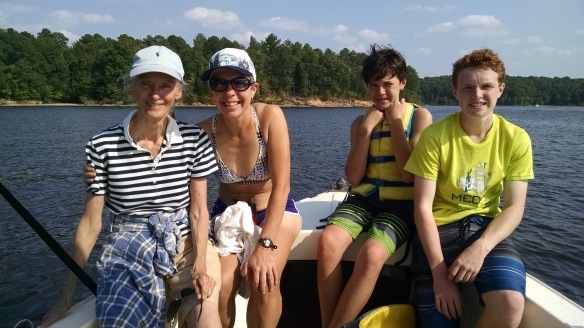
Shirley, me, Simon, and Stephen on Shirley’s birthday last September.




